Aboriginal and Torres Strait Islanders
We would like to acknowledge and pay respect to the Traditional Owners of the land on which we stand, the Kaurna People of the Adelaide Plains. It is upon their ancestral lands that the Port Adelaide Enfield Council meets. It is also The Place of the Kardi, the Emu, whose story travels from the coast inland.
We pay respect to Elders past and present. We respect their spiritual beliefs and connections to land which are of continuing importance to the living Kaurna People of today. We further acknowledge the contributions and important role that Aboriginal people continue to play within our shared community.
Niina Marni – Welcome
We recognise the importance of preserving our cultural heritage – recognising the past, acting in the present and building a better future.
Aboriginal people have lived on this land for 60,000 years. Their heritage includes stories, people, memories, events and traditions as well as landscapes and places that are of significance to our local community.
As our City continues to grow and evolve as a city we look forward to and support a future of change and growth. However it is vital that we understand who we are today, our past and where we have come from; and what we want for the future.
Council has a number of ongoing and regular projects to ensure that the contributions made by Aboriginal and Torres Strait Islander people in our community are recognised and celebrated. These include awards, scholarships and community events. The Aboriginal Advisory Panel meets regularly and acts as an important conduit for information and exchange.
Our Aboriginal People and Culture Handbook (PDF, 4610.13 KB) has been developed as a resource to guide and educate the wider community and develop knowledge and understanding of Aboriginal people and culture.
Welcome to Country
Pre-European history of Port Adelaide
An understanding of Kaurna history and knowledge is integral to the history and cultural development of the Port Adelaide Enfield area. Kaurna People have occupied the lands we now know as Port Adelaide for thousands of years, and the region is of great importance for Aboriginal people. The Kaurna People called the land around the Port River Yertabulti, (Yerta meaning place or land, and Bulti meaning sleep or death).
The Wirra Kaurna, a northern tribe, occupied land on the eastern bank of the Port River, while the Port River Tribe resided on the western bank of the river, with their territory stretching from West Lakes to the tip of the Lefevre Peninsula, and from Glanville to the sea. The Port River Tribe’s totem was Kudlyo, the Black Swan.
The Kaurna People have a strong spiritual attachment to and partnership with the land, and the rich and diverse eco-zone of the Port Adelaide region prior to European settlement, provided them with food, shelter, and areas of spiritual significance. The river provided flax, rushes, reed covered dunes, mangrove forests and marshes and swamps, which offered fish, crabs and oysters as food sources, flax was used to make nets to catch fish and hunt game animals such as kangaroo, while reeds were made into mats, baskets and clothing, and trees and plant life, including the gum and honeysuckle, provided shelter and could be used to make tools.
The Port Adelaide tribe lived in camps around the Port waterways and beaches during the summer time, and in the winter they moved east into the foothills. Ityamiitpinna, also known as King Rodney, reported to be the first Kaurna man encountered by the Europeans when they arrived at Port Adelaide in 1836, lived in a summer camp his wife Tangkaira and their daughter Ivaritji and other members of their family group, in the area near the lighthouse near Commercial Road.
Living Kaurna Culture
Throughout the year there are a number of significant dates relating to Aboriginal and Torres Strait Islander communities. On these dates there are a range of events that are held throughout the country, in Adelaide and in the Port Adelaide Enfield Council region. Some of these events are large scale with many people attending and others smaller community based events. Most events are open to both Aboriginal and non-Aboriginal people and attending them provides an opportunity for gaining a deeper cultural understanding of our Aboriginal and Torres Strait Islanders people.
| Date | Significant Event |
|---|---|
| January 26 | Survival Day |
| February 13 | Anniversary of Australian Government Apology to the Stolen Generation |
| March 19 | Close the Gap Day |
| March 21 | Harmony Day |
| May 26 | National Sorry Day |
| May 27 - June 3 | Reconciliation Week |
| June 3 | MABO Day |
| July 5-12 | NAIDOC Week |
| August 4 | National Aboriginal & Torres Strait Islander Childrens Day |
| Second Week of November | City of Port Adelaide Enfield Nunga Week |
References
Port Adelaide: Tales from a ‘commodious harbour’, John Couper-Smartt, 2003, Friends of the South Australian Maritime Museum Inc. pg 32.
Kudlyo the Black Swam Dreaming: Veronica Brodie and the continuity of Kaurna history at Glanville and Le Fevre peninsula, Research report prepared for the Lartelare Homeland Association, by Sheridah Melvin, June 1994.
Kaurna cultural heritage survey, July 2007, Vivienne Wood, Heritage Consultant, for the City of Port Adelaide Enfield.
Mudlangga to Yertabulti track, Lewis O’Brien, City of Port Adelaide Enfield brochure.
